Wooden building materials have many advantages - reliability, durability, harmlessness. They retain heat well, are resistant to adverse environmental factors, are little susceptible to expansion when the temperature changes, and look attractive in finished buildings. But over time, these properties are partially lost. The use of sodium silicate for wood processing makes the material more durable and fireproof.
- The need to protect wood
- Characteristics of liquid glass
- The specifics of working with liquid glass
- Preparation of wood processing
- Wood processing
- Product selection
- Commodity producers
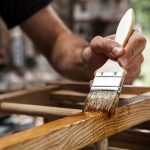
The need to protect wood
Timber materials used in frame constructions and roofing are hygroscopic. They absorb moisture from the air, damp, mold and gradually lose their strength. The destructiveness of the external environment on wooden structures depends on:
- from increased moisture content in the environment;
- on the amount and volume of precipitation;
- from the rate of decay;
- from the probability of fire;
- from exposure to chemicals;
- from woodworm insects.
The use of water glass prevents the adverse effects of dampness and other factors, extends the life of wooden structures. It is advisable to use a coating composition in those areas that are most exposed to moisture:
- in basements and office premises;
- in places of accumulation of condensate from heating and ventilation systems;
- in attics where moisture penetrates during rain;
- on floor beams regularly exposed to precipitation.
to contents ↑Liquid glass does not absorb into wood. When applying the product to the surface, a protective layer forms, which serves to waterproof the building material and disinfect it as an antiseptic. This eliminates the likelihood of the development of pathogenic microflora in the structure of wood and the ingress of moisture inside it.
Characteristics of liquid glass
The second name of the substance is silicate glue. It is an aqueous solution of sodium or potassium silicates. With electrode coating, this composition is replaced by lithium silicates. The material was first received back in the 19th century. Now there are several ways to make a product industrially. Its parameters depend on the ratio of components that do not affect quality. However, for some uses, a particular composition is preferred.
Alkaline liquid glass dissolves in water. Acidity is from 10 to 13. The saturation and consistency of the composition is due to its concentration, temperature and ratio of elements. Sodium-based material goes into a liquid state at a temperature of more than 600 degrees. A thickened film of sodium silicate is able to dissolve in water, and under the influence of humidity and carbon dioxide in the air, it loses its properties.
Thanks to waterproofing, thermal insulation and fire retardant qualities, the product finds application in numerous fields:
- production of building materials resistant to acids and water;
- special impregnation of fabric surfaces;
- manufacture of refractory paint;
- strengthening loose soil.
Silicate glue glues cellulosic materials. It is used in the production of electrodes and in the process of drilling.
to contents ↑Important! According to the instructions, the product is incompatible with organic substances, except for sugars, alcohol and urea.
The specifics of working with liquid glass
Real protection against moisture is carried out in the case of coating silicate glue with a layer of 0.1 mm. You should first familiarize yourself with the rules of working with a chemical agent, which can lead to individual sensitivity of the skin, irritation of the respiratory system and thermal injuries of the eyes. That is why when working with this material, safety precautions are necessary. Usually use preservatives:
- special work gloves;
- individual mask;
- safety glasses for the eyes;
- overalls.
When working, you need a brush or roller, as well as a grinding tool for preliminary surface cleaning.
to contents ↑Preparation of wood processing
The industry produces primer silicate glue in liquid form. The consistency of jelly is considered the norm. The thicker structure of the product will not allow it to soak into the wood - it will just freeze on the surface. As a result, the protective properties of silicate glue are lost. Various manufacturing companies produce a product of unequal density.
Before use, depending on the initial viscosity, the product is diluted with water according to the instructions: usually two, three or four times. Experienced specialists are able to determine the degree of dilution with great accuracy.
to contents ↑Wood processing
Priming of wood is performed in the temperature range from -20 to +40 degrees. To ensure the required thickness of the coating with liquid glass (100 μm) there must be at least two layers of the product. The second layer is applied after absolute drying of the first.
The job is to perform the following steps:
- familiarization with the manual;
- compliance with the temperature regime;
- personal security organization;
- work surface alignment;
- cultivation of silicate glue with tap water.
Diluted sodium silicate is applied to the smoothed polished surface using a paint roller or a volume brush, allowed to dry completely and cover again. If necessary, the procedure should be repeated.
Consumption of the composition is associated with the quality of the surface to be primed: the better it is sanded, the less material is consumed for its coating. In contrast, for less smooth flooring, product costs will increase. The solidification period of liquid glass is due to the purity of the solution or additives included in its composition. It ranges from 10 minutes to half a day. Most additives are in flame retardants.
to contents ↑Attention! Usually treated with freshly made wooden coating. This increases its durability, preserves the natural shades and appearance of the material.
Product selection
The structure, density and cost of the material depend on the method of its production and the components used. According to the most elementary method, a substance is obtained from a silicon-containing raw material combined with an alkaline mixture at certain pressure and temperature.
There are several types of water glass for heterogeneous surfaces. Before choosing a product, usually get acquainted with its characteristics and determine its compliance with the desired coverage. For wood surfaces, sodium-based silicate adhesive is commonly used. The information on the packaging should be examined:
- where is the product manufactured;
- shelf life;
- precautionary measures.
Commodity producers
Three samples of the product are optimal for coating a tree:
- The "expert" produced by Descartes is a sodium product. It is designed to increase the durability and reliability of wood, protect it from moisture, mold, fungus, fire and wood insect insects. The product is non-toxic, does not contain solvents, is distinguished by the absence of a pungent odor, is ready for use - does not require dilution, tolerates freezing without loss of quality. The time of complete drying at 20 degrees and normal humidity is about a day.
- Translucent liquid glass "Omega" with a sodium composition is produced in finished form by the St. Petersburg company "Aist". The tool is characterized by the absence of solvents. It protects wood from the effects of negative natural factors and fire.
- An aqueous alkaline solution of sodium silicates from Kubanzheldormash is a viscous light gray liquid. The product provides a durable light-resistant coating with dirt-repellent and fire-retardant qualities.
Sodium silicate is used in areas exposed to aggressive natural factors - outside and inside buildings. Coating wood with liquid glass is effective to extend the life of the material, protect it from the harmful effects of environmental factors and preserve the appearance of the structure.

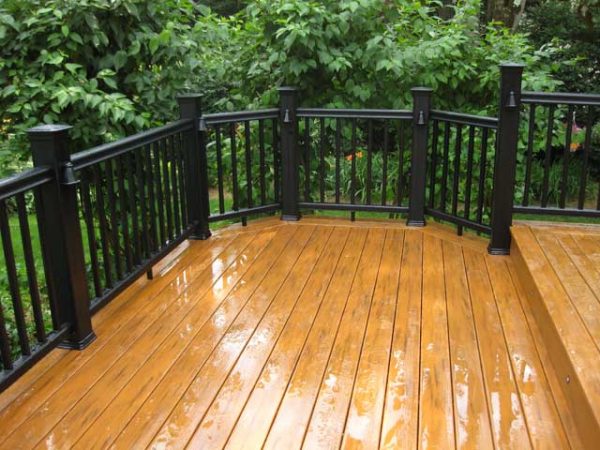
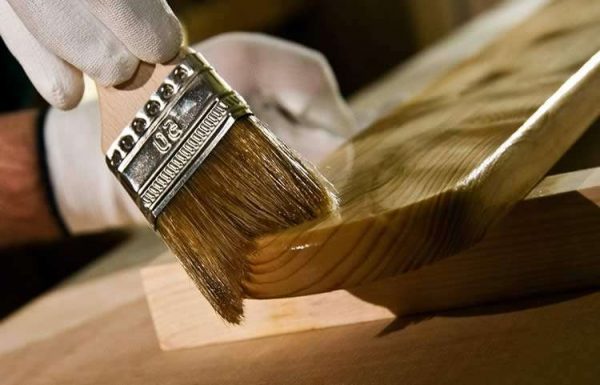
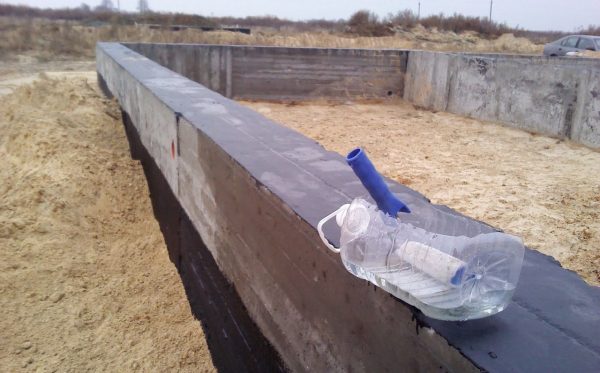
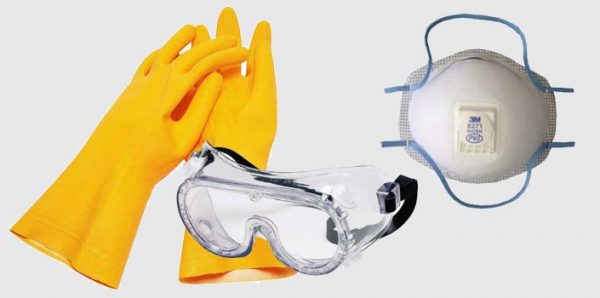
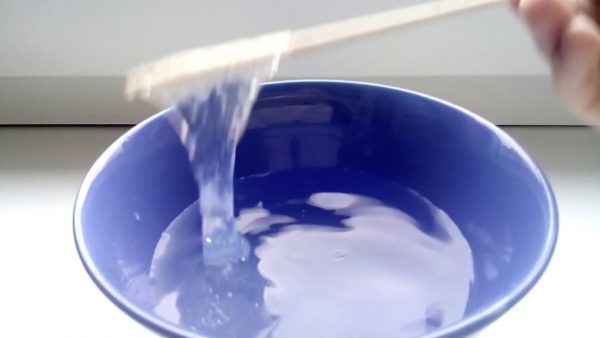
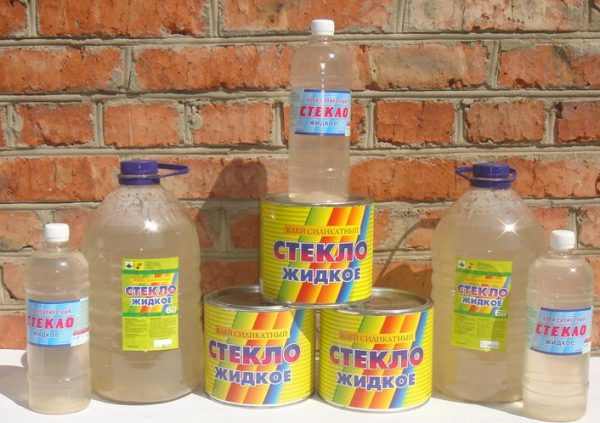
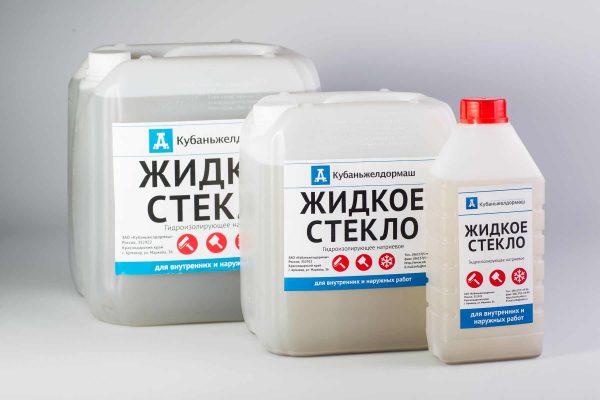



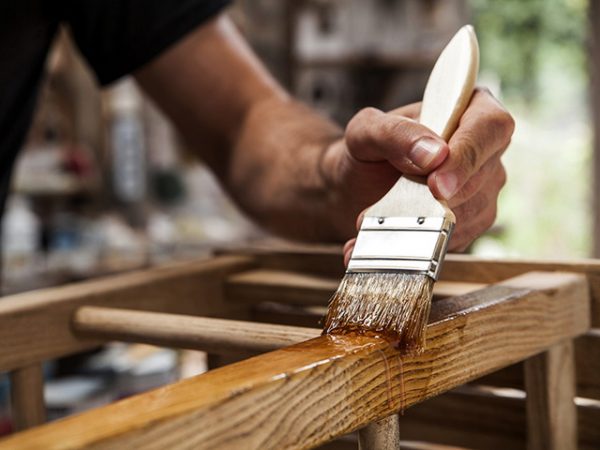

this liquid glass will be washed off the tree after the first rain, it’s office glue and in Africa glue is nothing more
Processed
interpanel seams with liquid glass after filling with mortar on high-rise buildings, I watched a couple of years - nothing is washed off, it only gets stronger and a little white coating appears.
Guesses should be exposed as guesses, but not statements ....